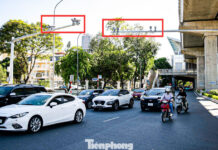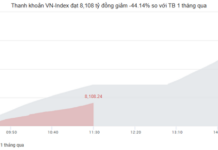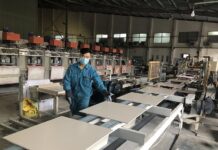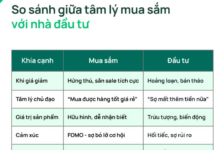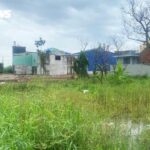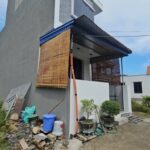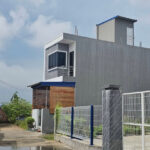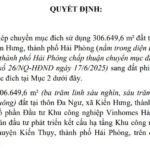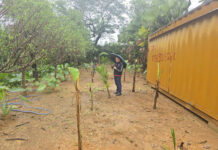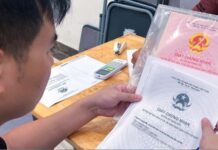In an exclusive interview with Nguoi Lao Dong Newspaper, the leader of Thien Huong Ward (Hai Phong City) revealed that the Economic Police Department of Hai Phong City Police has dispatched officers to collaborate with local authorities. Their mission is to verify and gather evidence regarding a case of mistaken construction on another person’s land within the ward.
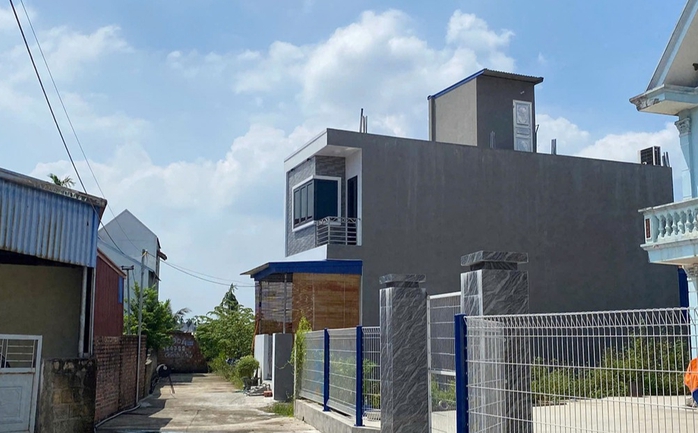
To date, Mr. Do Van H. has refused to dismantle the structure.
Previously, as reported by Nguoi Lao Dong Newspaper, on September 22, Ms. Tran Thi Kim L. (46 years old, residing in An Hai Ward, Hai Phong City), whose land was mistakenly built upon by Mr. Do Van H. (from Village 7, Kien Bai Area, Thien Huong Ward), filed a complaint. The complaint was addressed to the Secretary of the Hai Phong City Party Committee, the Director of Hai Phong City Police, and the Chief Prosecutor of Hai Phong City People’s Procuracy.
In her complaint, Ms. L. asserted that her family is the rightful owner of land plot No. 4856, map sheet No. 3, Kien Bai Commune, former Thuy Nguyen District (now Thien Huong Ward, Hai Phong City). The land was officially certified with a red book on October 29, 2024.
By November 2024, Ms. L. was shocked to discover that one of her family’s land plots had been seized by Mr. Do Van H., who hired workers to construct a sturdy two-story house on the property.
Immediately, Ms. L.’s family and local authorities repeatedly urged Mr. H. to halt construction and return the land. However, Mr. H. ignored these requests and continued to complete the project.
During mediation, Mr. Do Van H. admitted to the “mistaken construction” due to incorrect guidance from a broker. He proposed resolving the issue by offering Ms. L.’s family an exchange of land or purchasing the plot for 550 million VND. This proposal has prevented both parties from reaching a mutual agreement.
“For the past year, our family’s land has been unlawfully seized by Mr. Do Van H. and his wife, Vu Thi T., who have illegally constructed a two-story house on our property.
We, along with local authorities, have repeatedly demanded that Mr. H.’s family cease construction. Despite acknowledging their mistake, they persist in their illegal actions and refuse to return our land,” Ms. L. stated in her complaint.
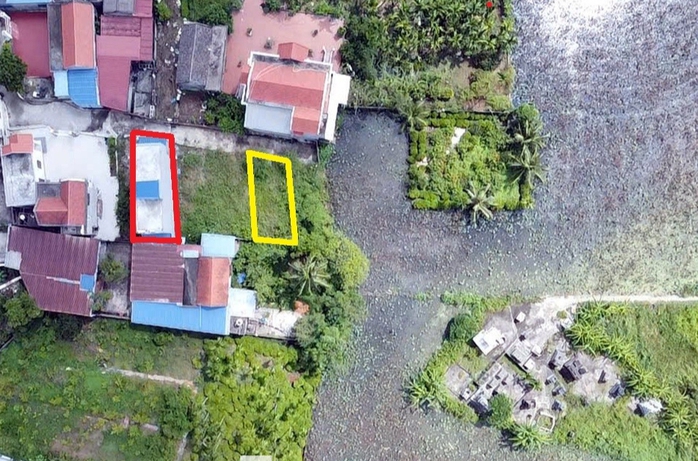
The mistakenly constructed two-story house (red circle) stands on Ms. Tran Thi Kim L.’s land. Mr. Do Van H.’s land plot is located approximately 20-30 meters away (yellow circle).
Regarding this case, the First Instance Judgment No. 08/2025/DS-ST dated August 11, 2025, issued by the People’s Court of Area 1 – Hai Phong City, ordered Mr. and Mrs. Do Van H. to demolish the illegally constructed building and return the land to Ms. L.’s family.
To date, Mr. Do Van H. has not complied with the demolition order and has appealed the first instance judgment of the People’s Court of Area 1 – Hai Phong City. The case is now pending an appellate trial.
According to Ms. L., the actions of Mr. Do Van H.’s family have caused significant financial loss and emotional distress to her family, who have spent the past year seeking justice.
Therefore, Ms. L.’s family urges the Investigative Police Agency of Hai Phong City Police to investigate and promptly initiate legal proceedings against the act of land usurpation.
Haiphong Completes Land Clearance in One Month of “Accelerated” Efforts, Prepares to Launch IDICO Corporation’s VND 3.5 Trillion Project
In early October, IDICO Vinh Quang Joint Stock Company, a subsidiary of IDICO Group, is set to commence construction on the Vinh Quang Industrial Park (Phase 1).
Latest Developments in the ‘Mistakenly Built House’ Case on Another’s Land in Hai Phong
Instead of returning the land to the rightful owner, Mr. Do Van Huu, a resident of Thien Huong Ward, Hai Phong City, has filed an appeal against the first-instance civil judgment in the case of “mistakenly building a house” on someone else’s land, where he is the defendant. The Hai Phong City People’s Court has accepted Mr. Huu’s appeal. While this tactic is within the defendant’s rights, it is also seen as a strategy to prolong the resolution of the case.




